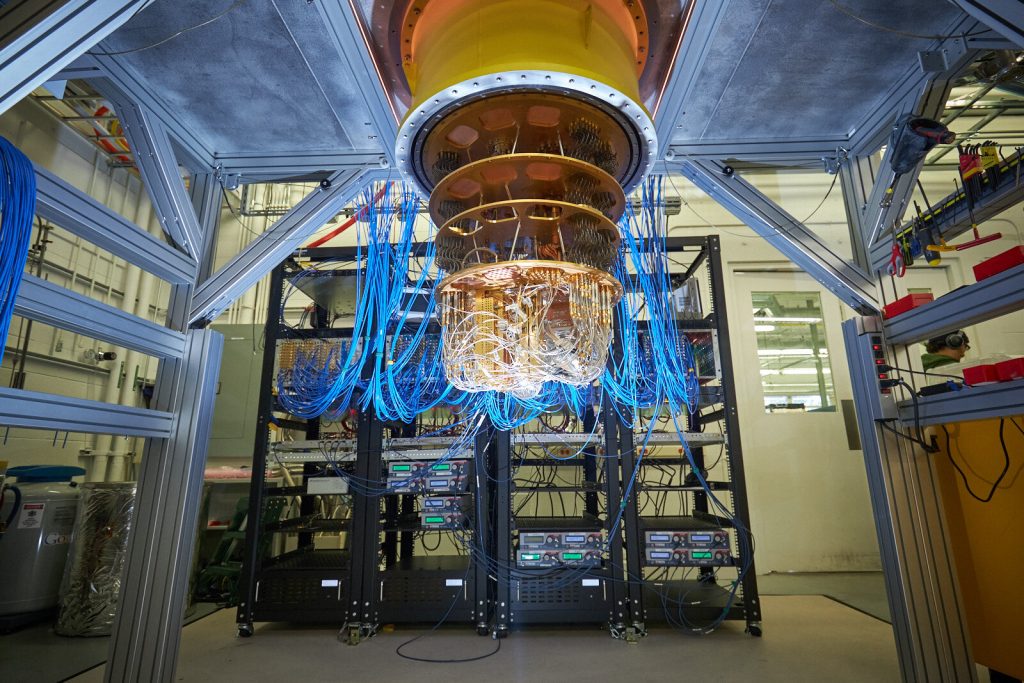
New Technology System Quantum Computer
A new kind of computer called a quantum computer functions differently than a conventional computer. In contrast to conventional computers, which store and process data using “0s” and “1s,” quantum computers employ quantum bits, or qubits. Superposition is the ability of qubits to simultaneously represent 0 and 1, which makes them unique. Because of this capability, quantum computers may perform multiple calculations simultaneously, which makes them far faster than conventional computers for some applications. The capacity of quantum computers to resolve extremely complicated issues is one of their greatest benefits. For instance, they can assist researchers in comprehending the behavior of atoms and molecules, which may result in improved materials or new medications. The science of protecting information, known as cryptography, can also benefit from the use of quantum computers. They might be able to crack the encryption that is now in place to protect data on the internet.
Entanglement is another crucial aspect of quantum computers. At this point, qubits are linked together, allowing changes to one to immediately impact another, even if they are located far apart. This unique connection has the potential to greatly increase the speed and power of quantum computers. Quantum computers, however, are still in the early stages of development and are not yet generally accessible. They might quickly make mistakes if the temperature or other factors fluctuate too much because they are highly sensitive to their surroundings. Researchers are putting a lot of effort into making them more dependable and stable.
In conclusion, quantum computers have the potential to change many areas of life, such as science, medicine, and security. While they are still in the early stages of development, they could be an important part of the future. As technology improves, quantum computers might help us solve problems that are impossible for regular computers today.

